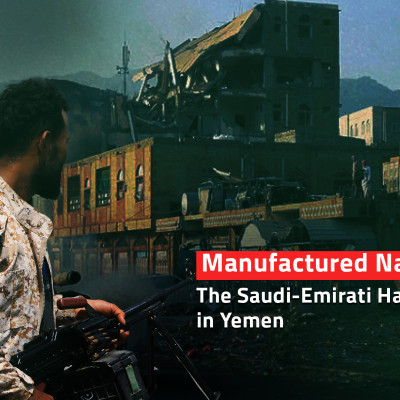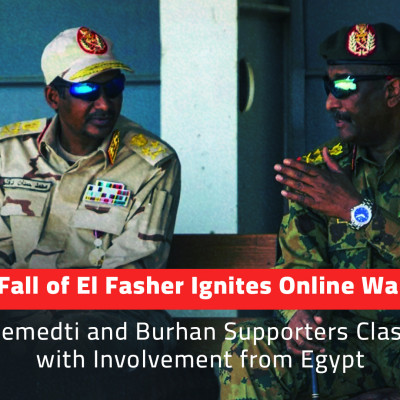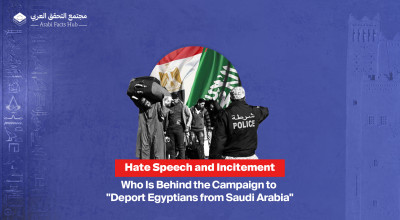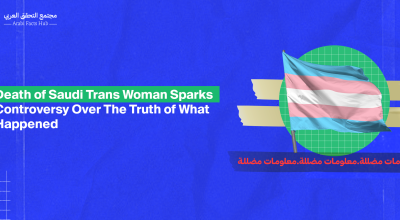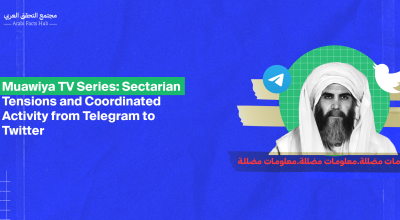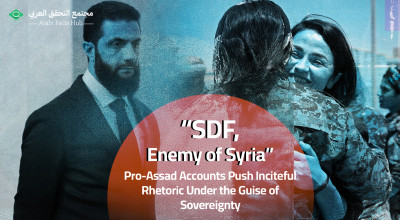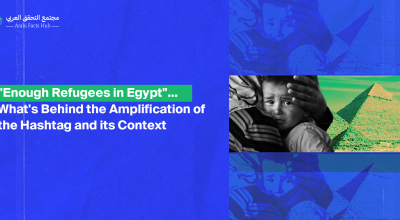‘Agents and Inciters’: A Coordinated Saudi Campaign Against Critics of Hajj Organization this Season
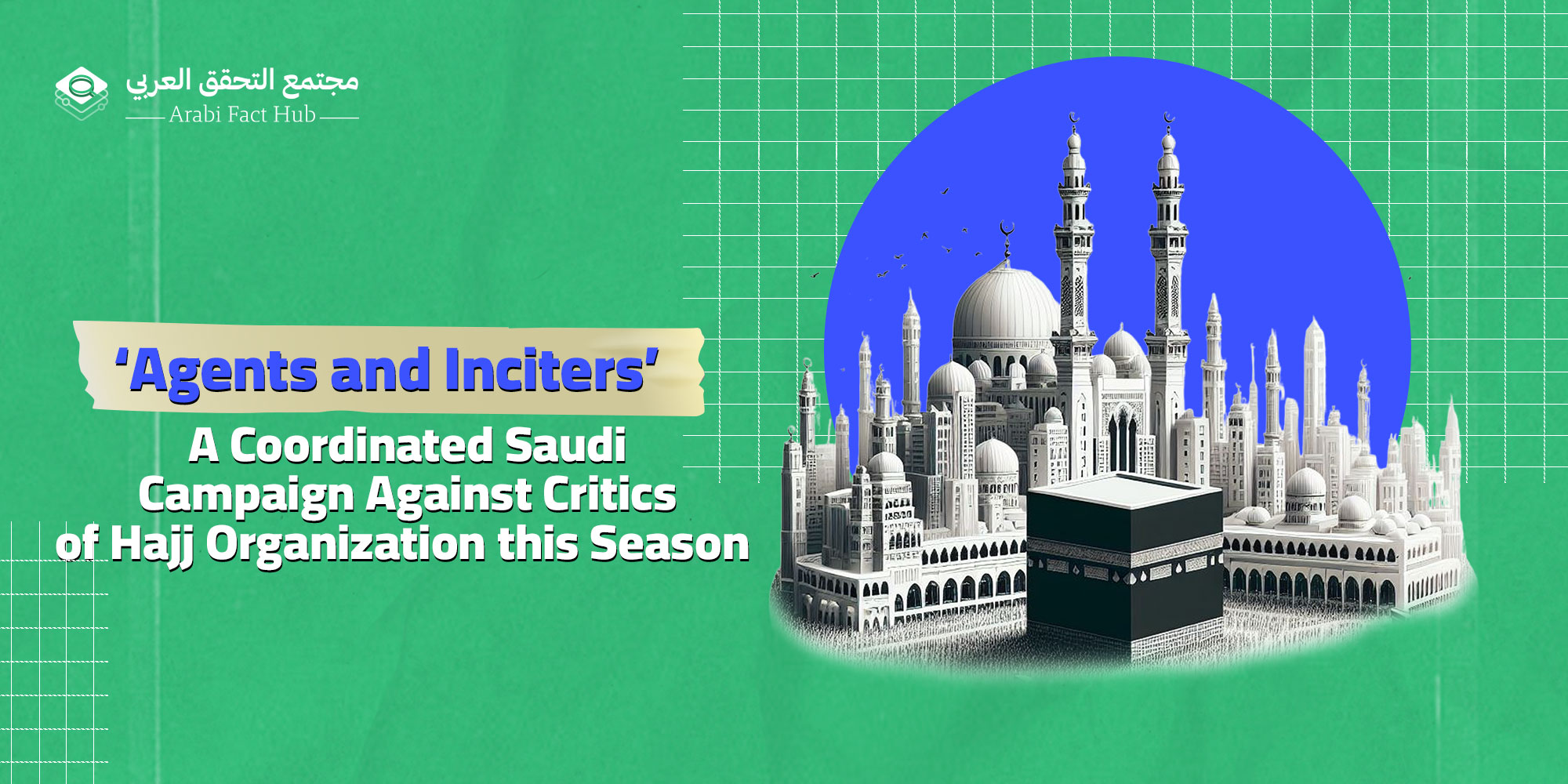
Activity on the hashtags intensified following the Saudi announcement of the death toll and lasted for at least two weeks, marking the longest period of activity for hashtags launched as part of a coordinated Saudi campaign. This may indicate the high level of interest in responding to criticisms regarding the organization of Hajj this season.
A week before the start of Hajj, the Saudi Ministry of Interior announced the expulsion of more than 300,000 people from Mecca for not possessing the necessary permits to perform the pilgrimage at that time. As is customary each year, some individuals resort to unofficial routes to perform Hajj due to its high costs, which exceed the financial capacity of many.
Prior to the official Saudi announcement of the death toll, several Arab and Islamic countries had reported the deaths of citizens during Hajj, which sparked some criticism on social media regarding the organization of Hajj this season. In response, Saudi hashtags emerged attacking critics of the Kingdom and accusing Saudi and Arab activists and opponents of 'inciting' pilgrims to travel without permits.
The hashtags became active following the Saudi announcement of the death toll and lasted for at least two weeks, marking the longest period of activity for hashtags launched as part of a coordinated Saudi campaign. This suggests a significant effort to address criticisms of Hajj organization.
During this period, several hashtags circulated on X, including: #Their_Incitement_Led_to_Their_Demise, #Inciters_Killed_Them, #Hajj_Deaths_Victims_of_the_Inciters, and #Prosecution_of_Inciters_is_an_Islamic_Demand.
Campaign organizers maintained the momentum of interaction by consecutively launching these hashtags between May 23 and July 6. The total number of posts across the four hashtags reached 93,196, with at least 30,773,000 views resulting in 248,000 interactions (likes, comments, shares), according to Meltwater's social media content analysis tool.
Periods of Activity for the Four Hashtags – Meltwater
Trolls among the most influential
Dozens of accounts were behind the promotion of the hashtags and amplifying interaction with their content. The majority are Saudi accounts that support the official positions of the government, having previously participated in coordinated campaigns. Leveraging a large number of followers and consistent activity on X, these accounts contributed to the widespread dissemination of the hashtags. Some identify themselves as 'social influencers,' some feature the Saudi flag or images of the Kingdom's leaders as their profile pictures, and reference the founding year of the First Saudi State, 1727, in their account names.
Of the most influential accounts on the four hashtags, boasting 8 million followers, is the account of Prince Abdulrahman bin Musa'id, which received significant interactions. The Prince retweeted a post by Saudi journalist Hussein Al Ghawi, a prominent figure in Saudi influence campaigns. The account 'Saudi Deterrence' (@S_H_188) tops the campaign accounts in terms of the number of posts, with 23 posts. This account, followed by 1.5 million people, frequently participates in pro-Saudi campaigns.
Additionally, trolling and propaganda accounts like 'Columbus,' 'Salman bin Hethlain,' and 'Egyptians Out Of Context' also participated in the campaign. The latter account has consistently engaged in online trolling activities and in spreading hate speech against Egyptians in Saudi Arabia.
Repetitive content and a unified message
Out of the 93.2 thousand posts on the hashtags, 65.2 thousand were in the form of retweets/reposts, while 14.9 thousand were replies to other posts, leaving only 9.7 thousand as original posts, according to Meltwater. In addition to the sudden spike in interaction rates on the hashtags, these statistics suggest coordinated activity or an attempt to manipulate posting policies on X, aiming to amplify and sustain online mobilization over several days.
Sentiment Analysis (Left) and Nature of Content Published in the Hashtags – Meltwater
The campaign posts largely blamed exiled dissidents, such as Omar Al Zahrani, Abdullah Al Ouda, Saad Al Jabri, Emad Al Mubaid, Nasser Al Qarni, and Saeed Al Ghamdi, for the deaths of the pilgrims. The posts labeled these dissidents as 'inciters and murderers,' promoting claims that they encouraged some pilgrims to perform Hajj without permits—one of the most prevalent narratives in the hashtags. The posts also contained inflammatory language, describing these individuals as 'traitors to the nation seeking refuge in Western countries,' 'tools of foreign entities,' and members of the 'Muslim Brotherhood.' These dissidents have been targets of previous trolling and defamation campaigns due to their stances and their critical comments about the Saudi government.
Designs featuring the names of the aforementioned individuals, accompanied by incitement against them, were repeatedly circulated across several accounts participating in the campaign. This suggests a coordinated effort to defame these figures.
Among the most popular videos on the hashtags was a clip featuring the Chairman of the Pakistan Ulema Council, Hafiz Muhammad Tahir Ashrafi, stating that the council had issued a fatwa declaring that 'performing Hajj without a permit is not a valid Hajj.' Ashrafi called on 'Islamic countries to hold accountable the scholars and criminals' who encouraged pilgrims to perform Hajj without a permit. He also described them as 'traitors... seeking to cause disruption and discord among Muslims.' He concluded the video by asserting that this year's Hajj season was 'successful, without a doubt.Over the past years, the Chairman of the Pakistan Ulema Council has received a warm welcome in Saudi Arabia. He has previously met with Saudi Crown Prince Mohammed bin Salman and the Minister of the National Guard, Prince Khalid bin Abdulaziz. Ashrafi has also regularly made statements on regional political issues, such as the political crisis in Yemen.In his remarks, which were widely covered by Saudi media, Ashrafi attacked the Houthi group in Yemen, labeling them as Qarmatians—a reference to the Qarmatian state that emerged in the eastern Arabian Peninsula during the 10th and 11th centuries. He also issued warnings to Iran, demanding that they cease their support for the Houthis.






















